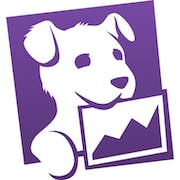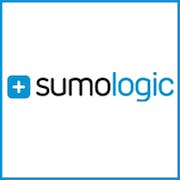Discover the top IoT analytics software for your business needs. Our comprehensive buyer's guide makes it easy. Explore the features and make an informed decision today!
Smart homes, intelligent factories, and automated vehicles - the Internet of Things (IoT) has transformed the way we live and work. With billions of connected devices generating an unprecedented amount of data, businesses are searching for ways to unlock the hidden insights in their IoT data. That's where IoT analytics software comes into play. According to Forbes, the total installed base of IoT connected devices is projected to amount to 75.44 billion worldwide by 2025.These powerful tools can help organizations optimize operations, boost productivity, and reduce costs by turning raw data into actionable insights. But with a wide range of solutions on the market, choosing the right one can be a daunting task. In this buyer's guide, we'll explore the key factors to consider when selecting this technology and provide expert insights to help you make an informed decision. So, if you're in the market for IoT analytics software, read on.
What is Internet of Things (IoT) Analytics software?
The Internet of Things (IoT) Analytics software is a crucial tool for companies that leverage data for informed decision-making. It's an advanced form of analytics that uses IoT devices' data to offer a comprehensive view of operations and other business aspects. This solution usually employs complex algorithms that enable the identification of patterns, trends, and anomalies in large and diverse IoT datasets.
This tool is particularly beneficial to companies that utilize IoT devices to collect and record data within their operations. It has several use cases, including:
- Predictive maintenance: It can help identify when devices are likely to fail, enabling maintenance teams to carry out repairs before it's too late.
- Asset tracking: It can track the location and usage of assets, enabling companies to optimize their use and minimize downtime.
- Quality control: The software can identify production line issues, enabling teams to make adjustments and enhance overall quality.
- Energy optimization: An IoT tool can monitor energy usage and identify areas where consumption can be reduced, thus lowering costs and carbon footprint.
- Supply chain optimization: This technology can track goods throughout the supply chain, helping businesses to optimally manage inventory, improve order fulfilment, and reduce waste.
- Remote monitoring: It also enables real-time monitoring of equipment and infrastructure. This feature is particularly useful in remote and hard-to-reach locations.
Companies that use IoT analytics technology include manufacturing, automotive, telecommunications, oil and gas, healthcare, retail, and logistics companies. These companies employ such solutions to improve their operations and optimize their resources, resulting in increased efficiency, reduced costs, and enhanced profitability.
What are the benefits of Internet of Things (IoT) Analytics software?
This industry has been growing at an unprecedented pace in recent years, and it has changed the way businesses operate. As companies continue to increase their reliance on data-driven decision-making, an IoT analytics system has emerged as an essential tool to help businesses extract actionable insights from the vast amounts of data generated by IoT devices. Let us explore its main benefits:
1. Improved operational efficiency - An IoT solution can help businesses optimize their operations by identifying inefficiencies and areas for improvement. By analyzing data generated by IoT devices, businesses can make informed decisions regarding resource allocation, production processes, and inventory management.
2. Enhanced customer experience - It can help businesses better understand their customers by providing insights on customer behavior, preferences, and needs. By analyzing data generated by IoT devices, businesses can tailor their products and services to meet the specific needs of their customers.
3. Increased safety and security - This program is able to help businesses improve safety and security by identifying potential risks and hazards. By analyzing data generated by IoT devices, businesses can proactively implement safety measures and preventive actions to minimize risk.
4. Cost savings - It can help businesses save money by reducing waste, optimizing energy consumption, and improving supply chain efficiency. By analyzing data generated by IoT devices, businesses can identify cost-saving opportunities and make data-driven decisions regarding resource allocation.
5. Innovation - An IoT analytics application can help businesses to innovate and create new products and services. By analyzing data generated by IoT devices, businesses can gain insights into market trends, customer preferences, and emerging opportunities, allowing them to develop innovative solutions and stay ahead of the competition.
10 key features of Internet of Things (IoT) Analytics software
Internet of Things (IoT) Analytics software is a powerful tool that helps businesses unlock the vast amount of data produced by IoT devices. Here are 10 of its common features that every business should consider when adopting this technology:
1) Data collection: An IoT app should be capable of collecting data from various sources, including sensors, devices, and databases.
2) Real-time analysis: With IoT technology, businesses can analyze data in real-time, allowing them to make quick, informed decisions.
3) Visualization: Advanced visualization feature, such as charts, graphs, and heat maps, help businesses gain a better understanding of their data.
4) Predictive analytics: This feature allows machine learning algorithms to provide predictive analytics, helping businesses forecast future trends and make proactive business decisions.
5) Cloud-based architecture: A cloud-based architecture function ensures scalability and flexibility, enabling businesses to easily access their data from anywhere at any time.
6) Customizable reports: IoT analytics software should facilitate customizable reports, allowing users to generate reports that fit their specific business needs.
7) Data security: Security is a vital aspect of this tool and includes features such as encryption, authentication, and access control.
8) Integration with other systems: An analytics platform should have the ability to integrate with other systems, such as enterprise resource planning (ERP) and customer relationship management (CRM) systems, for optimal data analysis.
9) Anomaly detection: With the vast amount of data produced by IoT devices, anomaly detection is crucial to identifying unusual patterns that may indicate errors or security threats.
10) Automation: It also automates data analysis, reducing the need for manual intervention and increasing efficiency.
Key considerations when investing in an IoT analytics tool
The widespread adoption of IoT has led to explosive growth in the volume of data generated by connected devices. Businesses must capture and analyze this data to gain insights into customer behavior, improve operational efficiency, and identify new business opportunities. It is specially designed to handle the complex data generated by IoT devices, but not all platforms are created equal. When choosing this solution, here are some factors that businesses should consider to ensure best return on investment.
1. Scalability: A good software should be able to handle an ever-increasing volume of data. The platform should easily scale as your business grows, without requiring a complete overhaul of the infrastructure. This will keep costs low and avoid disruptions to the business.
2. Ease of use: It is essential to choose a platform that is easy to use. Business users should be able to access, analyze, and make data-driven decisions that drive business growth, without requiring specialized technical skills. It should have a user-friendly interface, and a drag-and-drop approach to data analysis.
3. Security: Data generated by IoT devices is sensitive and valuable and requires robust security measures. Ensure that the package you choose adheres to industry security standards, including encryption, access controls, and data monitoring. It is also essential to choose a vendor that has expertise in managing security threats and can provide ongoing support.
4. Integration: An IoT analytics package should easily integrate with your existing IT infrastructure, including any cloud services, databases, ERP systems, and data warehouses. Integration simplifies the process of data migration, reduces the risk of data loss, and avoids disruptions to your business processes.
5. Customization: Every business is unique, and the IoT package you select should be customizable to meet the specific needs of your business. It should be able to provide custom reports, dashboards, and alerts so that businesses can quickly identify trends and insights specific to their business.
6. Advanced analytics: Businesses need to gain useful insights into the vast amounts of data generated by IoT devices. An IoT tool should have advanced analytics capabilities such as machine learning, predictive analytics, and AI to help businesses gain valuable insights to inform decisions that drive business growth.
Market trends for an Internet of Things (IoT) Analytics system
The Internet of Things has revolutionized the way businesses operate, allowing them to collect volumes of data and gain insights that were previously impossible. To harness the full potential of this technology, IoT analytics software has become a necessity for businesses across a wide range of industries. According to a Valuates report, the market size of IoT cloud platform is expected to reachUSD 10,330 million by 2028. In addition, IoT analytics forecasted that by 2025 there will be over 27 billion IoT connections. This year, we are likely to see an increasing number of IoT analytics software trends emerge.
One of the most significant trends is the adoption of edge computing. With the edge computing approach, data is processed at the edge of the network, reducing the need for massive amounts of data to be transferred to the cloud. As a result, businesses will be able to save on bandwidth costs, reduce latency, and operate more efficiently.
Another key trend we can expect to see is the development of AI and machine learning-based solutions. IoT data analytics can help businesses identify patterns and extract insights, but AI and machine learning will take it to the next level by making predictions and recommendations based on data. This technology can help businesses make more informed decisions, optimize their operations, and improve the customer experience.
Another key trend in IoT analytics technology is the increased focus on data security and privacy. With the volume of data being generated and transmitted through IoT devices, securing it has become paramount. In 2024 and beyond, we can expect to see an increasing number of IoT focused cybersecurity solutions to ensure the safety and privacy of the data collected.
Additionally, real-time data analytics is one of the most significant trends that we can expect to see. Real-time analysis of data from IoT devices can help businesses respond quickly to any issues that may occur. It can also help optimize operations by providing insights into key metrics and identifying potential bottlenecks.
Finally, IoT analytics software solutions aimed at improving sustainability practices will also mark a massive trend. These solutions will track resources, energy, and manage waste more efficiently to help companies become more eco-friendly.
Conclusion
To summarize, IoT analytics software is a powerful tool that can transform the way businesses operate and interact with their environments. By investing in the right solution and leveraging the insights provided by IoT data, organizations can unlock new levels of performance and innovation, ensuring they remain at the forefront of their industries. The future of IoT analytics is bright, and those who embrace it will be well-positioned to reap its many rewards including but not limited to improving business operations, making informed decisions, and reducing environmental impact.









